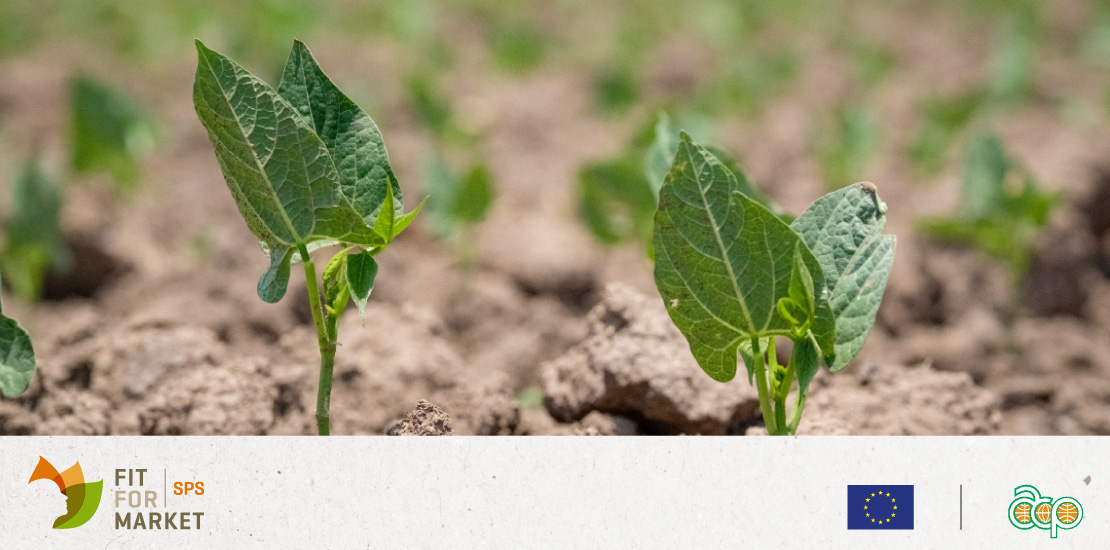EU and GB approval changes – October-December 2022
- 20/01/2023
- Posted by: Gaetan Dermien
- Category: ACP EN, News

Following the UK departure from the EU, COLEACP’s Regulation Monitoring now covers both EU and GB approval changes, enabling us to keep COLEACP members and partner-beneficiaries up-to-date on both regulatory frameworks.The European Commission (EC) has recently published changes to plant protection product (PPP) approvals within the European Union (EU). These include:
- Renewal of approval of Fish oil and Heptamaloxyloglucan as low-risk active substances
- Renewal of approval of active substance Pythium oligandrum strain M1
- Notification to the WTO of its intention to renew the approval of captan
Great Britain (GB) has recently notified the WTO of its intention to withdraw the approval of the active substance alpha-cypermethrin .
How will ACP producers/exporters be affected?
Non-approval, withdrawal of approval or expiration of approval mean that EU/GB maximum residue levels (MRLs) are likely to be maintained or reduced to the limit of determination (LoD) which, in most cases, will mean that they can not be used on crops for export to the EU/GB.
What should ACP producers/exporters do now?
If you currently use alpha-cypermethrin on crops destined for the GB market, you need to ensure that current uses allow you to comply with new GB maximum residue limits or start looking for alternatives as soon as the change is communicated. If this is likely to cause you significant problems, and you fear being left without effective and available alternatives, please contact COLEACP at: network@colead.link.
We will keep you informed as more information becomes available.
Following the UK departure from the EU, the PPP approvals for Great Britain (GB) have been following a different review process since January 2021. Note that EU approvals still apply in Northern Ireland. Great Britain is the mainland comprising England, Scotland and Wales.
COLEACP’s regulation monitoring now covers both EU and GB approval changes, enabling us to keep COLEACP members and partner-beneficiaries up-to-date.
In this News, ‘key active substances’ refers to those used/registered in one or more ACP countries on horticultural crops that are frequently exported regionally or internationally. While COLEACP makes every effort to provide comprehensive information about EU and GB PPP regulatory changes, it is possible that some PPPs or crops relevant to you are not included in our list of key substances/crops. We recommend that you review the following section, which gives details on all changes in 2022, to check for any others that could affect you. If you see any PPP that you use on crops for export to the EU or GB in the lists below, we recommend that you check the regulation itself using the link provided.
Changes of approval in the EU
Fish oil
Fish oil is a natural animal-derived substance. It is an oil extracted from the tissues of oily fish that can be used as a repellent for game in deciduous and conference forests. It is suitable for use in organic farming and for IPM, where approved for use in a given country.
The European Commission (EC) has published Commission Implementing Regulation (EU) 2022/2305 concerning the renewal of approval of Fish oil as a low-risk active substance in the EU.
Heptamaloxyloglucan
Heptamaloxyglucan is a natural substance that is not strictly speaking a pesticide, but proposed for use on grapevines as a frost protectant.
The European Commission (EC) has published Commission Implementing Regulation (EU) 2022/2315 concerning the renewal of approval of heptamaloxyloglucan as a low-risk active substance in the EU.
Pythium oligandrum strain M1
Pythium oligandrum strain M1 is a fungal parasite widespread in nature, which can be used to control a wide range of soil-borne fungal pathogens, including: Botrytis, Fusarium, Gaeumannomyces, Ophiostoma, Phialophora, Phoma, Phythopthora, Pseudocercosporella, Pythium, Sclerotinia and Verticillium.
The European Commission (EC) has published Commission Implementing Regulation (EU) 2022/2314 concerning the renewal of approval of the active substance Pythium olgandrum strain M1 in the EU.
All PPP approval changes introduced in 2022
Table 1 shows all changes to PPP approvals introduced in the EU and GB since the start of 2022.
If you require additional information, or face particular problems as a result of these changes, please contact COLEACP at: network@colead.link.
Further proposed approval change
Table 2 shows WTO notifications of draft regulations of active substance approvals that have a potential impact on ACP horticulture exports.
Table 2. World Trade Organization (WTO) notifications of EU and GB decisions concerning active substance approvals potentially affecting horticulture exports, in accordance with Regulation (EC) 1107/2009 and amending Regulation (EU) 540/2011.
| Active substance | Key substance* | Active substance status | Publication | Link |
| Captan | X | renewal of approval in EU | 28/09/2022 | link |
| Alpha-cypermethrin | X | withdraw of approval in GB | 17/10/2022 | link |
*Key active substances are those used/registered in one or more African, Caribbean and Pacific (ACP) country on horticultural crops that are frequently exported regionally or internationally.
The World Trade Organization (WTO) Technical Barrier to Trade (TBT) notifications advise that an active ingredient is subject to a proposed non-renewal or modification of condition of approval for use in the notifying country or region (usually linked to human or environmental risks).
All draft regulations must be notified to the WTO Technical Barriers to Trade Information Management System (TBT IMS) for a commenting period of 60 days before they are adopted. This provides an important opportunity for countries to feed back into the regulatory process to seek an amendment if the change is likely to have a significant impact on exports. When this is the case, stakeholders should contact their national WTO contact point in order to provide their feedback.
Reference
Lewis, K.A., Tzilivakis, J., Warner, D. and Green, A. (2016). An international database for pesticide risk assessments and management. Human and Ecological Risk Assessment: An International Journal, 22(4): 1050-1064. DOI: 10.1080/10807039.2015.1133242




